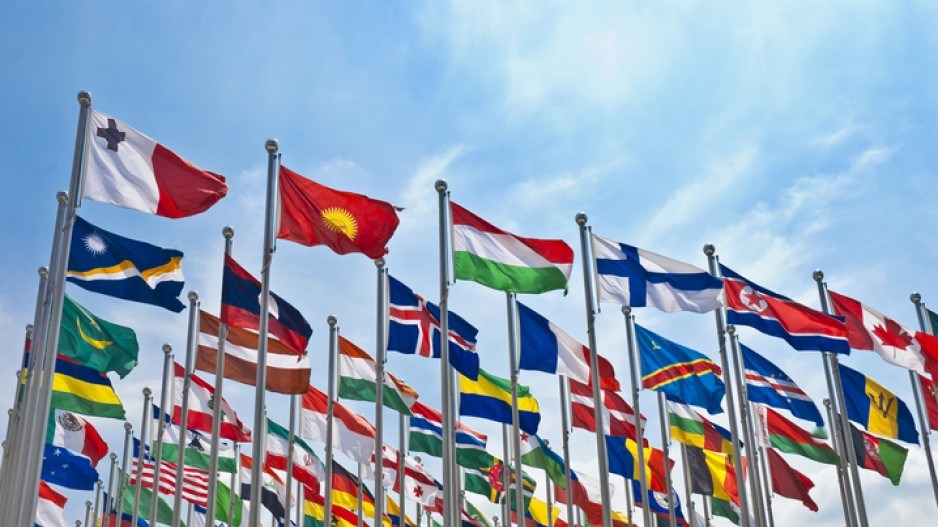Late last year, when Research Co. and Glacier Media took a look at the perceptions of Canadians on other countries, the world was a very different place. The COVID-19 pandemic has made us more aware of how governments have acted to ensure the health and well-being of their inhabitants.
As was the case in 2019, one of our founding nations tops the chart of 15 countries, albeit at a lower level than six months ago. Almost three in four Canadians (73%, down 10 points) currently have a positive view of the United Kingdom – a proportion that rises to 78% among those aged 55 and over and 85% among Atlantic Canadians.
The pandemic did not greatly affect perceptions of some other members of the G-7. More than two-thirds of Canadians hold positive feelings towards Japan (70%), Italy (69%), France (also 69%) and Germany (67%). An Asian country – South Korea – comes very close to enjoying this same level of rapport among Canadians (61%, up nine points since last year).
Two other countries had their share of controversial events since our last review. In Russia, Vladimir Putin effectively became president-for-life after a referendum on a wide-ranging package of constitutional reforms. China has been in the minds of Canadians due to the COVID-19 pandemic and for other reasons, including the well-documented massive rejection to the presence of Huawei in Canada’s 5-G networks, the continued confinement of Michael Kovrig and Michael Spavor and renewed concerns about the future of democracy in Hong Kong.
Negative perceptions of Russia dropped by five points in Canada to 57%, while only 26% of Canadians (unchanged) hold positive feelings. The numbers for China are decidedly worse, with two-thirds of Canadians (67%, up five points) offering a negative assessment and just 21% (down six points) espousing positive views. This is a new low for China, as the proportion of negative opinions outnumbers positive ones by a three-to-one margin across Canada.
The biggest change since 2019 is observed when Canadians are asked about the United States. The fluctuation is understandable at a time of enhanced media coverage and increased uncertainty about opening the border.
Last year, 47% of Canadians had a positive view of our neighbours to the south. In this latest survey, the proportion has dropped to 32%, with 62% of Canadians saying their opinion of the United States is negative. Those currently bewildered by what is transpiring in the United States include 75% of women, 64% of Canadians aged 55 and over and 66% of Ontarians.
The decline of American exceptionalism is also evident when political allegiance is assessed. Only 47% of Conservative Party voters in Canada have a positive view of the United States, down from 64% last year. The numbers are even worse among Liberal Party and New Democratic Party (NDP) supporters (30% and 24%, respectively).
There is no single region of Canada where a majority of residents holds a positive opinion on the United States. The numbers are better in Manitoba and Saskatchewan (44%) and Alberta (39%), but drop to 36% in Atlantic Canada, 35% in Quebec, 28% in Ontario and 26% in British Columbia.
In six months, the White House may have a new occupant. If Donald Trump becomes a one-term president, we may see a shift in the opinions of Canadians. Over the past three decades, Canadians have usually had a better assessment of the United States when a Democrat is serving as president.
In Latin America, the proportion of positive views on Mexico increased to 54% (up eight points), while Venezuela continues to lag (33%, up three points). India fares a little bit better, with just over a third of Canadians (37%, up one point) holding a positive opinion.
There is a bit of statistical noise when it comes to the Middle East, with perceptions about Saudi Arabia (20%, up three points) and Iran (16%, up two points) still near the bottom of the list – which is occupied again by North Korea (13%, up two points).
Over the past six months, Canadians have maintained a connection to the United Kingdom and other members of the G-7. Our wariness about Russia continues, but the most sizable drops are observed in two countries. In the case of China, a change in government behaviour is unlikely. The situation is clearly different in the United States. The election that will take place this November may usher in a change in how we feel about the country and where it is headed. •
Mario Canseco is the president of Research Co.
Results are based on an online survey conducted from July 6 to July 8, 2020, among 1,000 adults in Canada. The data has been statistically weighted according to Canadian census figures for age, gender and region in Canada. The margin of error – which measures sample variability – is plus or minus 3.1 percentage points, 19 times out of 20.




